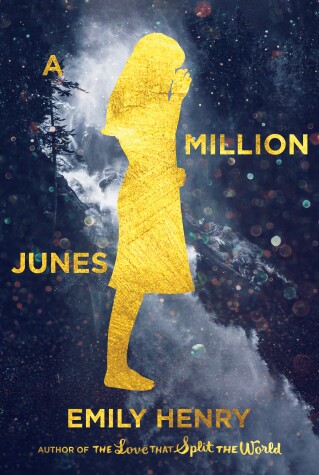Reviewed by ladygrey on
The magical realism is lyrical and the characters are genuine and dynamic and it's easy enjoy the story as it unravels. In many ways it's powerful and vivid in its truthfulness. Also, it used a word I've never heard before which like hasn't happened in more years than I'd like to admit to.
I did think the last third was quite a bit different than the first two. and not just because the first two are all about questions but because they're all about Saul and June and discovery and this really delightful dynamic between them. The last third kind of felt like it was all the same thing again and again and there was a lot less of June and Saul together in it.
Also, I couldn't escape that comparison to Sarah Addison Allen. If this is like any of her books, it's the most like [b:The Peach Keeper|8546358|The Peach Keeper|Sarah Addison Allen|https://i.gr-assets.com/images/S/compressed.photo.goodreads.com/books/1320549305l/8546358._SY75_.jpg|13414212] which is also about generational curses (of a sort) and understanding the past sets characters free in the present. It's truly a beautiful book. And so as much as I really did like A Million Junes, it being so similar to The Peach Keeper made me want it to be more like The Peach Keeper. Because the resolution of A Million Junes delves out of magical realism into straight up fantasy. And one of the beautiful things about Allen's books is that, as saturated as they are with magic, the resolution is always grounded in reality. They're revelations that change a character's perspective on the past, or set them free from some lie they've lived with their whole life, or allow them to let go of anger or forgive someone or... it's based around very practical, grounded emotions. That's the delightful thing about it because that transformation relatable - it's the sort of thing any of us could find, a promise that we too can forgive, can be set free from bitterness or create healing in our lives. And maybe just by reading the story we are set free a little.
And while the message about letting go of the past is universal, the execution as our characters cross the veil and walk through this fantastical landscape and have to wash the past off each other is so singular to their situation that it feels very far way from us (or at least me).
[a:Robin McKinley|5339|Robin McKinley|https://images.gr-assets.com/authors/1314406026p2/5339.jpg] (whose writing I also love) also tends to go pretty abstract in her climaxes and it's the one thing that I don't particularly love about her stories. So, when A Million Junes separated Saul and June and then veered deep into the fantasy realm it faltered for me.
But even with that, I still ridiculously enjoyed A Million Junes and would heartily recommend it to my book club, to my friends and pretty much to anyone who asked (except maybe my brothers).
Reading updates
- Started reading
- 2 March, 2019: Finished reading
- 2 March, 2019: Reviewed
